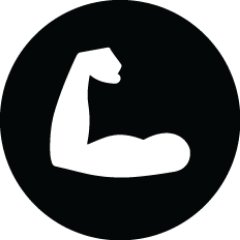
By Yolanda Lau
Whether you’re hiring employees or freelancers, some of the same fundamentals apply. Work has changed and will continue to change. Today, the shelf life of a hard skill — content-based knowledge — is very short. Over half of today’s job activities could become automated by 2055. To succeed in a continuously evolving and changing economy requires highly adaptable workers. Your people are your best asset, and it is crucial to understand each person’s future potential for roles they’ve never done before — instead of hiring them only for what you need today.
In addition to soft skills, here are three additional skills of the future, how to hire for them, and how to teach and/or acquire these skills.
Lifelong Learning And Coachability
A 2017 Deloitte report states that professionals in software engineering, marketing, sales, manufacturing, law, finance, and accounting must update their skills every 12 to 18 months. Time is a scarce commodity, and you don’t have time to hire and train new people with this frequency. One way around this is to hire on-demand workers for specific projects as needed. However, I would argue that even when working with independent contractors, it’s best to work with people who love to learn, who love to receive feedback, and who can quickly get up to speed in changing circumstances.
For workers, I recommend that you ask for feedback from colleagues and supervisors and take action on that feedback. Also, take advantage of the many platforms available to update your skills continuously.
For hirers, there are a few questions I like to ask potential employees and freelance consultants:
- Are there skills you are working to acquire?
- Are there random things you would like to learn about?
- Tell me about the most impactful feedback/constructive criticism you’ve gotten.
These questions help evaluate the degree to which someone is open to feedback and an eager lifelong learner.
Written And Oral Communication Skills
As the world has shifted to remote work during our current crisis, we’ve all seen for ourselves the importance of clear and effective communication. When communicating over Slack, Google Chat, Microsoft Teams, or email, it’s necessary to be able to infer what someone’s unspoken concerns are and to respond appropriately. Listening skills are an essential component of successful communication.
As machine learning and artificial intelligence begin taking over more job functions, skills that are harder for computers to complete effectively become more important. While some AI are capable of writing — and even effective copy for content and ads — effective written and oral communication skills are currently beyond the reach of machines.
For workers, the best things you can do are write more memos instead of having more meetings and practice being aware of how you communicate. Your words, tone, and method of communication affect the outcome you desire.
When hiring potential employees and freelance consultants, I recommend requiring several writing samples. In addition, conduct interviews through short, written messages to mimic communication over Slack as well as interviews over Zoom to evaluate both written and oral communication. I like to ask them the following question: “Can you think of a time you were communicating with someone and they did not understand you? What did you do?” How they respond shows the degree to which they are aware that how we communicate is important and can shift communication styles when appropriate.
Computational Thinking Skills
Computational thinking (or algorithmic thinking) is a phrase that became more widely used since 2006 when computer scientist Jeannette Wing published an essay suggesting that computational thinking is a fundamental skill for everyone, not just computer scientists. I think of computational thinking as the ability to think logically and strategically, work with uncertainty (and a lack of complete data), break down complex issues into smaller pieces, quickly recognize patterns, use patterns to think through potential solutions, manipulate and use data to gain insights and iterate when appropriate. As the world has become increasingly interconnected and complex, this skill has become ever more important.
I’ve found that consultants who lack computational thinking skills require more supervision, generally due to the lack of creativity to complete tasks. A computational thinker is agile, is adaptable, and generally learns quickly.
An example of a question to ask a potential hire might be something like: “How many tennis balls does it take to fill an SUV? And how did you arrive at your answer?” There’s no “right” answer, but asking a question like this allows you to evaluate how a candidate breaks down a complicated problem, makes assumptions, works through potential solutions, gut-checks their answer, and iterates if necessary.
Real-World, Project-Based Learning Experiences
Apprenticeships, internships, fellowships, course work or independent work focused on complex real-world problem-solving are a few ways to gain experience. Experiential learning is the surest way to gain the skills needed for success. When hiring employees or freelancers right out of school, I look for people who have had real-world, project-based learning experiences.
Prepare Your Team For The Future Of Work
As companies work to become more agile and adaptable in their business strategies, it’s essential that they are hiring workers with the skills needed for the ever-changing future of work. HR leaders are rethinking their roles and talent strategies as they prepare for the future of work with a blended workforce model. Building and growing a team able to meet the opportunities and challenges ahead requires life-long learners who embrace feedback, communicate effectively, and fuel creativity with computational thinking skills. By hiring workers with these three critical skills (and with soft skills), your team will be ready for the future of work.
This article was originally published in Forbes.
Interested in the Future of Work? Join the Work of the Future #FutureOfWork Facebook Group.

Yolanda Lau is an experienced entrepreneurship consultant, advisor, and Forbes Contributor. She is also an educator, speaker, writer, and non-profit fundraiser.
Since 2010, she has been focused on preparing knowledge workers, educators, and students for the future of work.
Learn more about Yolanda here.

FlexTeam is a mission-based micro-consulting firm, co-founded by Yolanda Lau in 2015, that matches talented mid-career women with meaningful, challenging, temporally flexible, remote project-based work opportunities. FlexTeam’s clients are businesses of all sizes across all industries and sectors. FlexTeam’s most requested projects are competitor / market research, financial models, and investor decks. FlexTeam is also the team behind Liquid.
